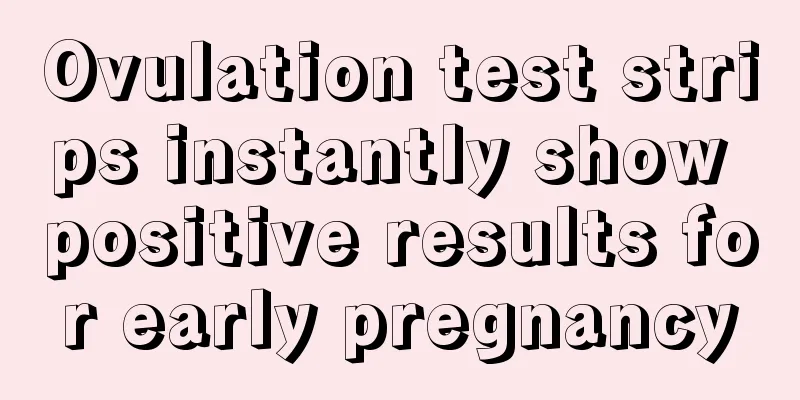How do you know if you have anovulatory menstruation?

|
You know, if women want to have a baby, they need normal ovulation. If a woman does not have an ovulation period, it means infertility, so ovulation is very important for girls. However, women cannot feel whether there is ovulation, so women need to understand the knowledge of ovulation. So let's find out together, how can women judge the symptoms of anovulatory menstruation? How to determine the symptoms of anovulatory menstruation 1. Menstrual pain. It refers to pain in the lower abdomen or lower back before, during, or after menstruation. When the attack is severe, the patient will be pale, sweat, have cold hands and feet, nausea and retching, and may even suffer from physical exhaustion and fainting. 2. The color of menstrual blood. Normal blood is dark red, and contains small fragments of uterine wall, cervical mucus, and squamous epithelial cells in the vagina, but no blood clots. If the menstrual flow is thin and watery, with only a little light pink or turning black or purple, it is abnormal. If the menstrual period is completely blood clots, it is also abnormal, and there may be other bleeding locations. You should see a doctor as soon as possible to ensure your physical and mental health. 3. Menstruation comes early. Early menstruation refers to a shortened menstrual cycle that is shorter than 21 days and persists for more than 2 cycles. The follicular phase is short, only 7 to 8 days, or the follicular phase is shorter than 10 days, or the body temperature rises by less than 0.5℃. 4. Abnormal bleeding. The temporary menstruation of women during their menstrual period or the bleeding during childbirth are all considered normal bleeding. Bleeding other than these two situations is considered abnormal vaginal bleeding. 5. Menstrual period. A woman's menstrual period is about 2 to 5 days. The general regularity of menstruation is that the menstrual flow is very small on the first day, increases on the second and third days, and then gradually decreases until the menstruation is over. For some people, after their menstruation is over, they have a little menstruation a day or two later, which is also called "menstruation coming back". This is not a disease, but a normal condition. However, some women's menstrual period lasts for 10 to 20 days, and the period is endless; some women's menstrual period is very short, just "flash" and it's over. These two situations are abnormal. |
<<: Bleeding in the second trimester but fetal movement
>>: How to know if you are pregnant without a test strip
Recommend
What to do if you have bleeding stools during pregnancy
Many pregnant women have safety issues during pre...
What to eat when preparing for pregnancy
In order to give birth to a healthy and lovely ba...
Pregnancy early leucorrhea more boys
Because in the early stages of pregnancy, the sym...
What is the cause of bleeding during intercourse with an IUD?
There are many reasons for bleeding during interc...
What causes breast pain in girls?
Girls who always feel pain in their breasts need ...
Can I take anti-inflammatory drugs during menstruation for adnexitis?
Adnexitis is a relatively common female disease i...
What causes yellow leucorrhea after menstruation?
We all know that women's bodies have certain ...
Will mild vulvar itching heal on its own?
Important reminder: The probability of curing vul...
How many days after scar pregnancy surgery will I be discharged from the hospital?
Scar pregnancy refers to the situation in which t...
What should I do if my stool is dry during confinement?
Dry stool is a folk term, but in fact it is what ...
Chocolate cyst pregnancy
Chocolate cyst is a common uterine disease. Becau...
What happens if the fetus is deprived of oxygen?
During pregnancy, everyone hopes that the fetus c...
Overview of Ovarian Cysts
Ovarian cysts are fluid-filled cysts located insi...
How to deal with oily hair? How to use white vinegar
In our daily lives, we are all used to washing ou...
PLANOLY: Social Media Trends for 2023
Strategic Cross-Posting In 2022, we saw many popu...









